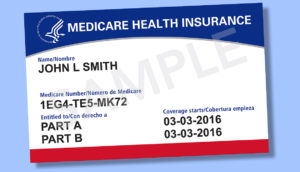Dear Liz: My wife and I bought our house 61 years ago in Southern California. The wife passed away seven years ago, and I became the sole owner. If I should die owning the house, I know my daughter will inherit and her tax basis will be the value of the house on that date. But if I sell the house, I’m not sure what my basis will be. Do I pick up the 50% of what the house was worth on the day my wife died and add to that the 50% of the original purchase price that would be mine? Or is my basis the original price of the house?
Answer: In most states, only your wife’s half of the home would get a new value for tax purposes at her death. In community property states such as California, though, both her half and yours get this step up in tax basis.
Tax basis determines how much taxable profit there might be when property and other assets are sold. For those who aren’t sure how tax basis works, a simplified example might help.
Let’s say Raul and Ramona bought their home for $40,000 in 1959. In 2013, when Ramona died, the home was worth $800,000. Today, it’s worth $1 million.
At her death, Ramona’s half of the home got a new tax basis. Instead of $20,000 (half of the purchase price), her half of the home now has a tax basis of $400,000 (half of its $800,000 value at the time).
In most states, Raul would keep the $20,000 tax basis on his half, so his combined basis in the home would be $420,000. If he should sell the home for $1 million, the profit for tax purposes would be $580,000.
In California and other community property states, the entire house gets a step up in basis to $800,000 when Ramona dies. If Raul sells the house for $1 million, the profit (or capital gain, in tax parlance) would be $200,000.
Of course, there would be no tax owed on this home sale, since Raul can exempt up to $250,000 of home sale profits. Raul could use Ramona’s home sale exclusion, and avoid tax on up to $500,000 of home sale profit, if he sells the home within two years of her death.
If Raul keeps the home until his death, on the other hand, it will get a further step up in tax basis equal to whatever the home’s fair market value is at the time (let’s say $1.2 million). If the daughter sells it for that amount, no capital gain tax would be owed.
 Today’s top story: Working remotely in the pandemic may generate a tax surprise. Also in the news: Advice on how to fly safely over the holidays, student debt continues to rise for new pharmacists, and how to save money during Medicare open enrollment this year.
Today’s top story: Working remotely in the pandemic may generate a tax surprise. Also in the news: Advice on how to fly safely over the holidays, student debt continues to rise for new pharmacists, and how to save money during Medicare open enrollment this year. Today’s top story: How hotel prices changed in 2020 vs. 2019. Also in the news: A new episode of the SmartMoney Podcast on emergency loans and the perks of buying local, what to know about EFTs and adding them to your portfolio, and what to do if you receive an unpaid notice from the IRS.
Today’s top story: How hotel prices changed in 2020 vs. 2019. Also in the news: A new episode of the SmartMoney Podcast on emergency loans and the perks of buying local, what to know about EFTs and adding them to your portfolio, and what to do if you receive an unpaid notice from the IRS.